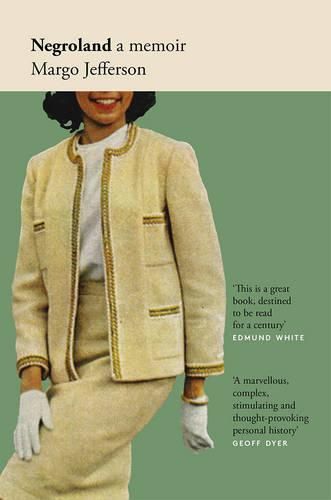Readings Newsletter
Become a Readings Member to make your shopping experience even easier.
Sign in or sign up for free!
You’re not far away from qualifying for FREE standard shipping within Australia
You’ve qualified for FREE standard shipping within Australia
The cart is loading…






The daughter of a successful paediatrician and a fashionable socialite, Margo Jefferson spent her childhood among Chicago’s black elite. She calls this society ‘Negroland’: ‘a small region of Negro America where residents were sheltered by a certain amount of privilege and plenty’. With privilege came expectation.
Reckoning with the strictures and demands of Negroland at crucial historical moments - the civil rights movement, the dawn of feminism, the fallacy of post-racial America - Jefferson brilliantly charts the twists and turns of a life informed by psychological and moral contradictions.
$9.00 standard shipping within Australia
FREE standard shipping within Australia for orders over $100.00
Express & International shipping calculated at checkout
Stock availability can be subject to change without notice. We recommend calling the shop or contacting our online team to check availability of low stock items. Please see our Shopping Online page for more details.
The daughter of a successful paediatrician and a fashionable socialite, Margo Jefferson spent her childhood among Chicago’s black elite. She calls this society ‘Negroland’: ‘a small region of Negro America where residents were sheltered by a certain amount of privilege and plenty’. With privilege came expectation.
Reckoning with the strictures and demands of Negroland at crucial historical moments - the civil rights movement, the dawn of feminism, the fallacy of post-racial America - Jefferson brilliantly charts the twists and turns of a life informed by psychological and moral contradictions.
In this crisp, elegant memoir, Margo Jefferson recounts her experiences growing up within Chicago’s black elite. The memoir takes its title from the name she uses to refer to herself and her peers, a society she describes as, ‘a small region of Negro America where residents were sheltered by a certain amount of privilege and plenty’. Alongside the intimate details from her own life, Jefferson also shares notable figures and key moments from the history of her society, and reflects on how Negroland is situated in the political and cultural landscape of today. Throughout, she speaks candidly of how their status never protected them from racism; she mourns the way it distanced them from other black people: ‘We’d settled for a desiccated white facsimile and abandoned a vital black culture.’
A Pulitzer Prize-winning cultural critic, Jefferson’s critical gaze is boldly engaged in this work. Negroland is intensely self-aware and never more so than when the focus is on the author herself. Jefferson refuses to simplify the complexities that form her life for the sake of narrative conventions and the memoir’s structure testifies to this – fragmented and ever-shifting, with abrupt changes between perspective and form. The content is relentlessly scrutinised by Jefferson and every childhood memory is doubted, every argument comes with counter argument in tow. Reading Negroland left me awash with questions instead of answers.
Towards the end of the memoir, Jefferson describes her struggles with depression, and the contradiction a suicidal drive posed for her in fulfilling her destiny as a Good Negro Girl. She writes, ‘We were not to be depressed or unduly high-strung; we were not to have nervous collapses. We had a legacy.’ It’s one of the most powerful moments in the memoir, and urgently speaks to a need for more stories like Jefferson’s to be shared.